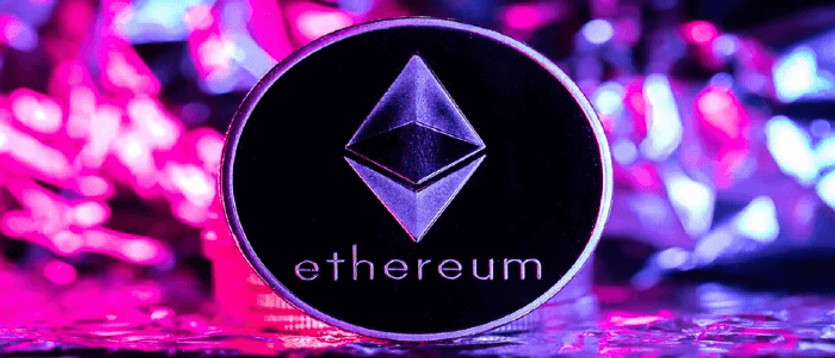Ethereum is a cryptocurrency that has been increasing in value at an alarming rate. Some people believe that it is headed for great things, while others are unsure if it is a wise investment. In this blog post, we will discuss the pros and cons of investing in Ethereum so that you can make an informed decision about whether or not to invest!
Pros of Investing in Ethereum
1. Easier to Buy and Work With Ethereum
It is very easy to buy Ethereum with a credit card. The process is simple and takes only a few minutes. To start the process, you only need to create a Coinbase account and verify your identity. Then, you need to link your credit card to your account. After that, you can buy ether with your credit card. The entire process takes only a few minutes.
In addition, the transactions on the Ethereum network are fast. The average transaction time is only 12 seconds. This is much faster than Bitcoin, which takes an average of 78 minutes to confirm a transaction.
2. Ethereum Has a Strong Security

Investing in Ethereum is a wise move because it provides security that is not found in other investment opportunities.
Ethereum is the most secure platform in the world because it is powered by the Blockchain. The Blockchain is a digital ledger that records all transactions made on the Ethereum network. This means that all transactions are transparent and no one can cheat the system.
The Ethereum team is also constantly working to improve security features and make sure that the platform is safe for users. They have even implemented a bug bounty program to incentivize people to find and report vulnerabilities. By investing in Ethereum, you are supporting a project that is making the internet a more secure place.
3. The Ethereum Blockchain is Highly Scalable
Another key advantage of Ethereum is its highly flexible and customizable nature. Because it was designed as a platform for developing decentralized applications, the Ethereum blockchain allows developers to create customized tokens and programs that suit their specific needs.
Additionally, Ethereum does not use a proof-of-work system like Bitcoin. Instead, it uses a proof-of-stake system which makes it easily scalable and efficient.
The scalability of Ethereum has been tested and proven. In 2017, there was a major cryptocurrency event called the DAO Hard Fork. The DAO hard fork resulted in two different versions of the Ethereum blockchain. One version was the original Ethereum blockchain and the other was a new version that had increased scalability. The new version of the Ethereum blockchain could handle up to 20 transactions per second. This was a major increase from the original Ethereum blockchain which could only handle 15 transactions per second.
Whether you are launching a new project or business, building a gaming application, or just want to experiment with the possibilities of smart contracts, Ethereum makes it easy to realize your ideas.
4. Ethereum Has a Strong Community
The Ethereum community is one of the strongest and most supportive in the cryptocurrency world. The Ethereum ecosystem is home to many passionate developers and enthusiastic investors who are constantly working to improve and grow this exciting platform. So investing in Ethereum will also open a door for connecting with like-minded and fellow enthusiasts who are developing or investing in it.
5. Lower Inflation Risk
Ethereum's approach to inflation is two-fold. The first layer is the block reward, which reduces over time. The second layer is a transaction fee that goes to the miners. This allows for a more gradual reduction in new ETH being introduced, rather than a sudden drop-off like with the block reward alone.
This system gives holders of ETH a greater incentive to hold onto their currency, as they know that new ETH will be introduced at a slower rate and thus deflationary pressure won't be as great. In addition, it gives miners an incentive to continue validating transactions even as the block reward decreases, ensuring that the network remains secure.
Overall, Ethereum's strategy for dealing with inflation risk is sounder than many other cryptocurrencies hence it's worth investing in it.
6. Offers High Liquidity
Investing in Ethereum is a smart move because of the high liquidity that the currency offers. Liquidity refers to how quickly an asset can be converted into cash without losing its value. Ethereum is one of the most liquid cryptocurrencies on the market, which means that it can be easily converted into cash without losing its value. This makes it a great investment for those who want to make profits with ease.
Ethereum is also a very stable currency, which means that it is less likely to experience sudden changes in value. This makes it a good investment for those who are looking for long-term stability.
7. Quick Mining

Ethereum miners are rewarded based on their share of work done, rather than their share of the total number of blocks mined.
This makes mining on Ethereum more accessible and decentralized than other proof-of-work blockchains. As a result, anyone with an internet connection and enough computing power can start earning Ethereum rewards.
If one wants to solo mine on their own personal computers, they can start seeing results in as little as a few minutes. This is much faster than other popular proof-of-work blockchains like Bitcoin, which can take days or even weeks to mine a block.
Cons of Investing in Ethereum
1. Highly Volatile
Volatility is one of the most important factors to consider when investing in any asset, and Ethereum is no different. The price of ETH can fluctuate wildly, and this makes it a risky investment.
One of the biggest reasons why Ethereum is so volatile is because it's still a relatively new asset. It doesn't have the same level of mainstream adoption as other assets like Bitcoin or gold, so there's less stability. This means that investors are more likely to sell off their ETH holdings when the market takes a turn for the worse.
Another reason for Ethereum's volatility is its high supply. There are currently over 100 million ETH tokens in circulation, and this number is only going to increase as more tokens are mined. This high supply means that even small changes in demand can have a big impact on the price.
If you're thinking of investing in Ethereum, you should know that the asset is still very volatile, and it's likely to stay that way for the foreseeable future.
2. Scaling Issues
Another disadvantage of Ethereum is the scalability issue. Ethereum can only process around 15 transactions per second, whereas Bitcoin can handle up to 56. This means that if Ethereum were to be used for mainstream purposes, it wouldn’t be able to keep up with the demand.
There are a few proposed solutions to this problem, but none of them have been implemented yet. The most promising one is called sharding, which would essentially allow the Ethereum blockchain to be divided into multiple pieces so that each piece can be processed separately. However, sharding is a complex solution and it’s not clear if it will actually work in practice.
3. Ethereum Is Not Widely Accepted as Other Cryptocurrencies.
Another con of investing in Ethereum is that it is not as widely accepted as other cryptocurrencies. This means that it can be harder to find places to spend your Ethereum, and you may have to pay higher fees when converting it to other currencies. This can be a challenge for those who want to invest in it.
There are a few reasons for this. One reason is that it is still relatively new and unknown compared to Bitcoin, which has been around since 2009. Ethereum was only created in 2015. Another reason is that Ethereum is more complex than Bitcoin and other cryptocurrencies, so people may be less likely to understand and use it.
And also, as mentioned earlier, the value of Ethereum has been more volatile than some of the other cryptocurrencies, which may make people less likely to invest in it.
4. Risks Associated With New and Untested Technology.
Investing in Ethereum also carries some risks associated with new and untested technology. The platform is still being developed and there are potential security vulnerabilities that could be exploited by hackers. There is also a risk that developers will not be able to deliver on their promises, which could lead to a loss of confidence in the platform and a drop in its value.
5. Regulatory Risks
The Ethereum network is decentralized, which means that there is no central authority governing it. This can be a challenge for those who want to invest in it, as there is no one entity to protect them from regulatory risk.
Investing in Ethereum can be seen as a gamble, as the value of the currency could drop if government's crackdown on its use.
Conclusion
Ethereum is a newer cryptocurrency on the market, and there are pros and cons to investing in it. Ultimately, it is up to the individual investor to decide whether or not they should invest in Ethereum based on the pros and cons described above.




